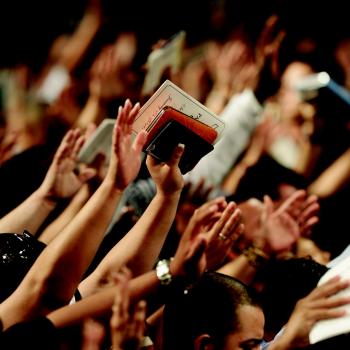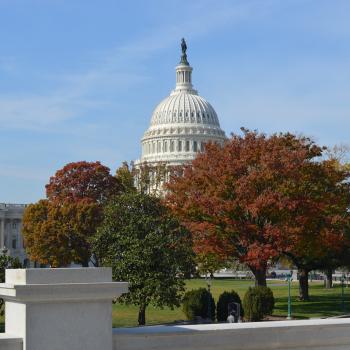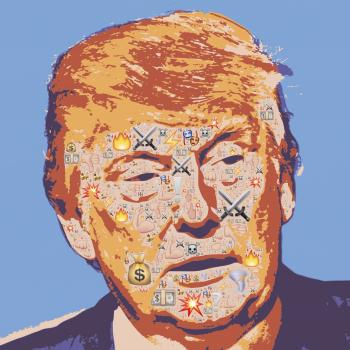He may possibly hold the distinction of being the shadiest, in an entire stable of shady characters that make up President Donald Trump’s inner circle.
I’m speaking, of course, of the president’s longtime personal attorney and “fixer,” Michael Cohen.
Cohen would have remained an otherwise little known player in the ongoing Trump Show, were it not for Trump’s long history of adulterous behavior and a $130,000 payoff in October 2016 to keep a porn star quiet about it.
For those who have somehow lost the thread, Cohen created a shell company called Essential Consultants, LLC in 2016. At that time, he funneled the $130,000 through that company, in order to pay the attorney of porn star, Stormy Daniels (real name: Stephanie Clifford).
The payment was made a month before the 2016 election, and at a time when women were coming out of the woodwork to accuse then-candidate Trump of inappropriate sexual conduct. This was pre-MeToo movement, and one by one, claims were made, then promptly blown off by Trump’s defenders.
Daniels, however, must have had the juice, because she was paid off.
It may be because she’d previously told her story, and took a polygraph – passing it – in regards to the affair, back in 2011.
The affair, the payoff, the subsequent denials, and the very recent admissions aside (Bonus: Financial disclosures revealed on Wednesday that Trump admits to knowing about the payoff, and says he “fully reimbursed” Cohen in 2017 for that payment), it now turns out that Michael Cohen had bigger plans in mind for Essential Consultants, LLC, besides just funneling payments to the paramours of his boss.
Last week, the very uncomfortable Daniels payoff business developed into something more, when it turned out Cohen was passing himself off as some kind of cock-eyed lobbyist, due to his long relationship with the president.
Companies like AT&T, Novartis, and Korea Aerospace Industries (KAI) all paid into Essential Consultants for vague purposes.
Novartis, a pharmaceutical company based in Switzerland, actually paid $1.2 million for what they admitted was nothing, stating that once they found out Cohen’s services would not benefit them, that they were already obligated by their contract to pay the full amount.
How did they get to be as big as they are making business decisions that way?
Cohen’s dealings through Essential Consultants may be a bigger deal than initially thought, with what turns out to be millions in payments from foreign companies for dubious purposes.
In fact, the shell company took in over $4 million from foreign sources. What’s more, even though Cohen told the bank that the company was for real estate consulting, the companies paying him have either no connection to real estate, or no apparent need for real estate consulting.
It has to be something else, right?
Bank officers have apparently smelled a rat, and turned over bank reports of suspicious payments to law enforcement.
The official told The New Yorker that two other suspicious activity reports, not previously reported on, showed another $3 million in deposits to Cohen’s company. All three reports were sent by the bank to the Treasury Department’s criminal bureau, but the official said he was motivated to share the first report because the two other ones are not in the database of the Treasury Department’s Financial Crimes Enforcement Network. Fearing a government cover-up, the official said he leaked the remaining report.
A “significant portion” of deposits to Cohen’s company were “derived from foreign entities,” bank officers wrote.
Let’s look at one of the suspicious payments.
The previously mentioned KAI paid $150,000 for what they said was legal advice about U.S. accounting procedures. Cohen, a personal injury lawyer (aka… ambulance chaser) has no experience in government accounting.
KAI are currently working with Lockheed-Martin in attempting to secure a $16 million contract to provide jets to the U.S. Air Force – which probably has nothing to do with the money paid to Cohen’s company.
Cohen also allegedly asked for foreign money from a Qatari investor during a meeting in Trump Tower during the presidential transition period.
Ahmed al-Rumaihi, who was the head of a $100 billion Qatari investment fund, told The Intercept that he asked Cohen what U.S. projects the fund should back in December 2016. But Cohen asked for an up-front fee of $1 million, al-Rumaihi said. (Al-Rumaihi said he did not pay Cohen, and Cohen denied he asked for money.)
That bit was blasted out over this past weekend, by none other than the attorney for Stephanie Daniels, Michael Avenatti.
Avenatti plastered photos across Twitter of Cohen and al-Rumaihi meeting at Trump Tower, along with Michael Flynn, the first national security adviser with the Trump administration.
More dirty players.
It also turns out that in the Spring of 2016, Cohen was actively seeking to strike a deal with Russia to build a Trump Tower in Moscow.
Cohen had told congressional investigators he stopped pursuing the project in January 2016, but they reportedly obtained text messages between Cohen and his former business associate Felix Sater showing the effort lasted into May 2016.
Sater told Cohen that “high-level figures in Russia needed to be involved because a project of this magnitude could not be completed without Putin’s approval,” according to Yahoo News. “Around the start of that year, Cohen became frustrated because Sater had not been able to set up the necessary meetings. Cohen swore at Sater and said he would make his own high-level contacts in Russia.”
Cohen was invited to an economic forum in St. Petersburg, but declined, saying travel to Russia would have to wait until after the GOP convention in July 2016.
Currently, Cohen is under investigation by federal prosecutors with Manhattan’s public corruption unit for bank fraud and potential campaign finance violations.
Is there more than just the surface dirt we see with Cohen and the companies paying into his shell company?
It’s almost certain.
The only question left is how, if at all, this splashes back on the president.










